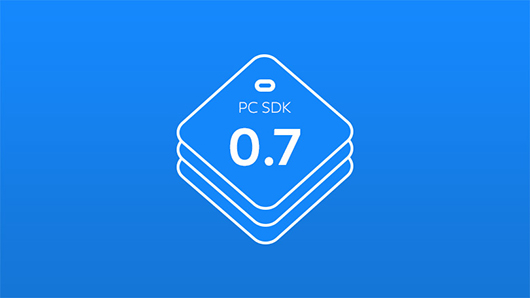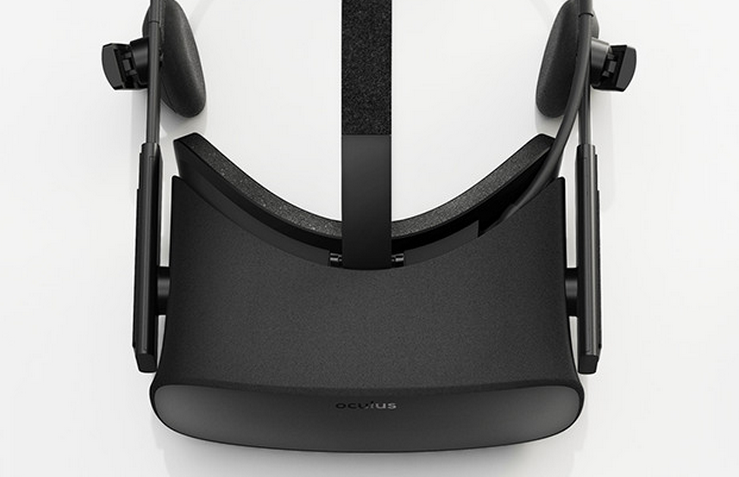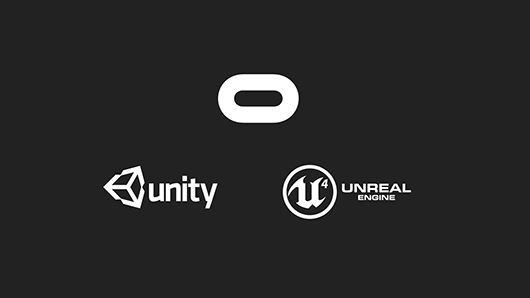Oculus Announces Release Date For SDK 0.7; Developers Be Warned
Oculus announced that the next iteration of the Oculus SDK will be released in the coming weeks. The new version leaves games built on outdated versions incompatible. Developers will want to update their wares as soon as possible.
Oculus will be releasing the new update to the Oculus PC SDK on August 20, bringing it to version 0.7. Oculus is calling this a "major release," which includes changes to improve stability and is better suited for low-latency performance while using the recommended hardware specifications. With SDK 0.7, Oculus is doing away with Extended Mode, and instead introducing a more refined Direct Driver Mode.
Unfortunately for developers who have been working on games and experiences for some time, the new SDK will not be compatible with software built using SDK 0.5 or earlier. This includes all content built with Unity 4.x, which means a large number of experiences out there will need to be updated.
With SDK 0.7, Oculus has completely discontinued support for Extended Mode on the HMD. The company said this was done because Extended Mode suffered from additional latency issues, which can significantly diminish the experience in VR. Oculus worked closely with Nvidia and AMD to create Direct Driver Mode. Rather than inserting an additional software level between the Rift and the GPU, headset awareness has been developed directly into the GPU drivers.
Oculus said this approach avoids many of the latency issues brought on by Extended Mode. In addition, having support built into the graphics driver limits the number of conflicts between the Oculus SDK and other applications. The company noted that new graphics drivers will be needed for this to work. Presumably both companies will have updated drivers ready for August 20.
Along with the announcement of SDK 0.7, Oculus stated that it is shooting for a November release of SKD 1.0. Once version 1.0 is released, the company will guarantee compatibility between SDK releases, but until that time, it will only guarantee compatibility with the previous version. This could end up being frustrating for many developers, as they will have to continuously update their software to work with the latest releases for the next few months. Oculus said the reason for this is that it allows the company to evolve the API and software architecture rapidly as it approaches the November release of version 1.0.
Oculus acknowledged that a great number of the applications available for Oculus will require updates to work with the next version of the SDK and has committed to making the transition as simple as possible. The company stated that the current Unreal Engine integration is based on 0.6, but integration for 0.7 will ship with the SDK.
Get Tom's Hardware's best news and in-depth reviews, straight to your inbox.
Developers working in Unity 5.x will be able to leverage the direct VR support already built into Unity. Oculus is working with Unity to update Unity 5.x to 0.7. The company said no additional work will be needed when this happens. Unity 4.x applications won't be as smooth. A plug-in will be provided that is based on 0.6.0.1. Oculus recommended upgrading to Unity 5.x, but said it will continue basic support for Unity 4.x in future SDKs for those who can't move to the new version.
Oculus recommended searching the Oculus Developer Forum for help updating your apps to version 0.7.
Follow Kevin Carbotte @pumcypuhoy. Follow us @tomshardware, on Facebook and on Google+.
Kevin Carbotte is a contributing writer for Tom's Hardware who primarily covers VR and AR hardware. He has been writing for us for more than four years.
-
So Oculus just basically burned their developers again. First by delaying forever the release, which in itself can be costly. But now, the vaporware just killed any effort that has been made. Not delayed, but made incompatible.Reply
Disrespecting your developers is a bad idea. -
Puiucs ReplySo Oculus just basically burned their developers again. First by delaying forever the release, which in itself can be costly. But now, the vaporware just killed any effort that has been made. Not delayed, but made incompatible.
It's not as bad as you think. This only affects a small number of devs that aren't using the latest versions for the games they will release in 2016.
Disrespecting your developers is a bad idea.
If you aren't a developer yourself then i suggest keeping your ignorant comments to yourself. You have no idea what this update does and how much it affects others. In my opinion the only vaporware here is you.
Being ignorant and naive is a bad idea. -
Spanky Deluxe ReplySo Oculus just basically burned their developers again. First by delaying forever the release, which in itself can be costly. But now, the vaporware just killed any effort that has been made. Not delayed, but made incompatible.
Disrespecting your developers is a bad idea.
They haven't delayed the release of any hardware at all. Everything is still on schedule and they are the only VR firm to already have plenty of VR devices in people's hands. Hell I have a DK2 sat right next to me and it works great.
It's going to be trivial for developers to update to the newer SDK as the engines will be updated quickly due to developers of those working closely with Oculus. Unity 5 and UE4 already support 0.6 which is fully compatible in 0.7 right now and 0.7 support will be there in no time.
The only developers who will be affected are those that are stuck on Unity 4 or UDK and they've known their days are numbered for a long time so if they're worth their salt, they will already have begun transitioning to the new engines. Anyone using a custom engine is obviously going to have their work cut out but that's the nature of engine design and cutting edge technology. -
everygamer ReplySo Oculus just basically burned their developers again. First by delaying forever the release, which in itself can be costly. But now, the vaporware just killed any effort that has been made. Not delayed, but made incompatible.
Disrespecting your developers is a bad idea.
Oculus was very clear that DK1 and DK2 were pre-release hardware and that the SDK is in a beta stage and will be going through changes. I have both the DK1 and DK2 and expect the transition for my small projects to require very little to adjust to the 0.7 SDK. Any and all major changes to the SDK and engine support that they can work out before the 1.0 release and retail product is smart, get it out of the way now before it will have customer and/or major developer impact post release. -
squibbfire This is good extended mode needs to disappear and direct mode needs to work better. It sucks having to switch it around when you are showing people the OCULUS.Reply


